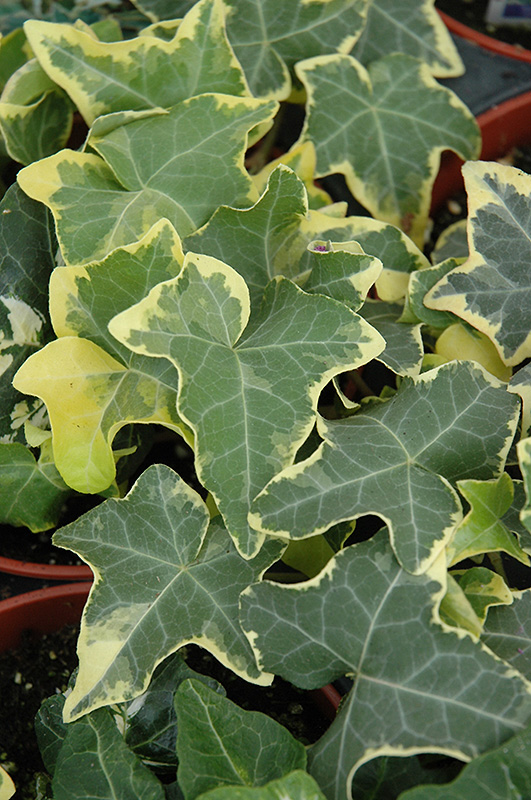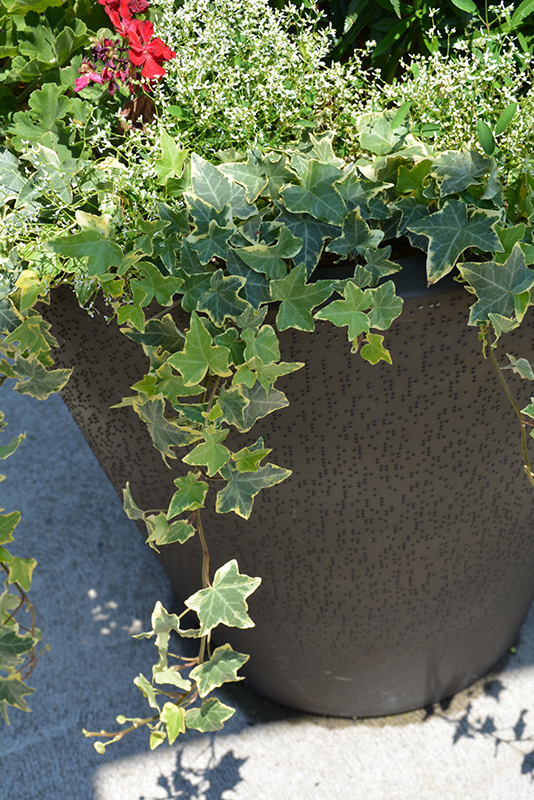Yellow Ripple Ivy
Hedera helix 'Yellow Ripple'
Height: 6 feet
Spread: 3 feet
Sunlight:
![]()
![]()
![]()
Other Names: English Ivy
Description:
A vigorous evergreen climber or dense groundcover; cascading and spreading, beautiful deep green foliage with yellow and gray variegation will compliment any indoor container
Features & Attributes
Yellow Ripple Ivy's glossy lobed leaves remain dark green in color with showy yellow variegation and tinges of grayish green throughout the year on a plant with a spreading habit of growth.
This is a multi-stemmed evergreen houseplant with a spreading, ground-hugging habit of growth. This plant can be pruned at any time to keep it looking its best.
Planting & Growing
When grown indoors, Yellow Ripple Ivy can be expected to grow to be about 6 feet tall at maturity, with a spread of 3 feet. It grows at a fast rate, and under ideal conditions can be expected to live for approximately 30 years. This houseplant performs well in both bright or indirect sunlight and strong artificial light, and can therefore be situated in almost any well-lit room or location. It prefers to grow in average to moist soil. The surface of the soil shouldn't be allowed to dry out completely, and so you should expect to water this plant once and possibly even twice each week. Be aware that your particular watering schedule may vary depending on its location in the room, the pot size, plant size and other conditions; if in doubt, ask one of our experts in the store for advice. It is not particular as to soil pH, but grows best in rich soil. Contact the store for specific recommendations on pre-mixed potting soil for this plant. Be warned that parts of this plant are known to be toxic to humans and animals, so special care should be exercised if growing it around children and pets.
There are many factors that will affect the ultimate height, spread and overall performance of a plant when grown indoors; among them, the size of the pot it's growing in, the amount of light it receives, watering frequency, the pruning regimen and repotting schedule. Use the information described here as a guideline only; individual performance can and will vary. Please contact the store to speak with one of our experts if you are interested in further details concerning recommendations on pot size, watering, pruning, repotting, etc.
-- THIS IS A HOUSEPLANT AND IS NOT MEANT TO SURVIVE THE WINTER OUTDOORS IN OUR CLIMATE --


